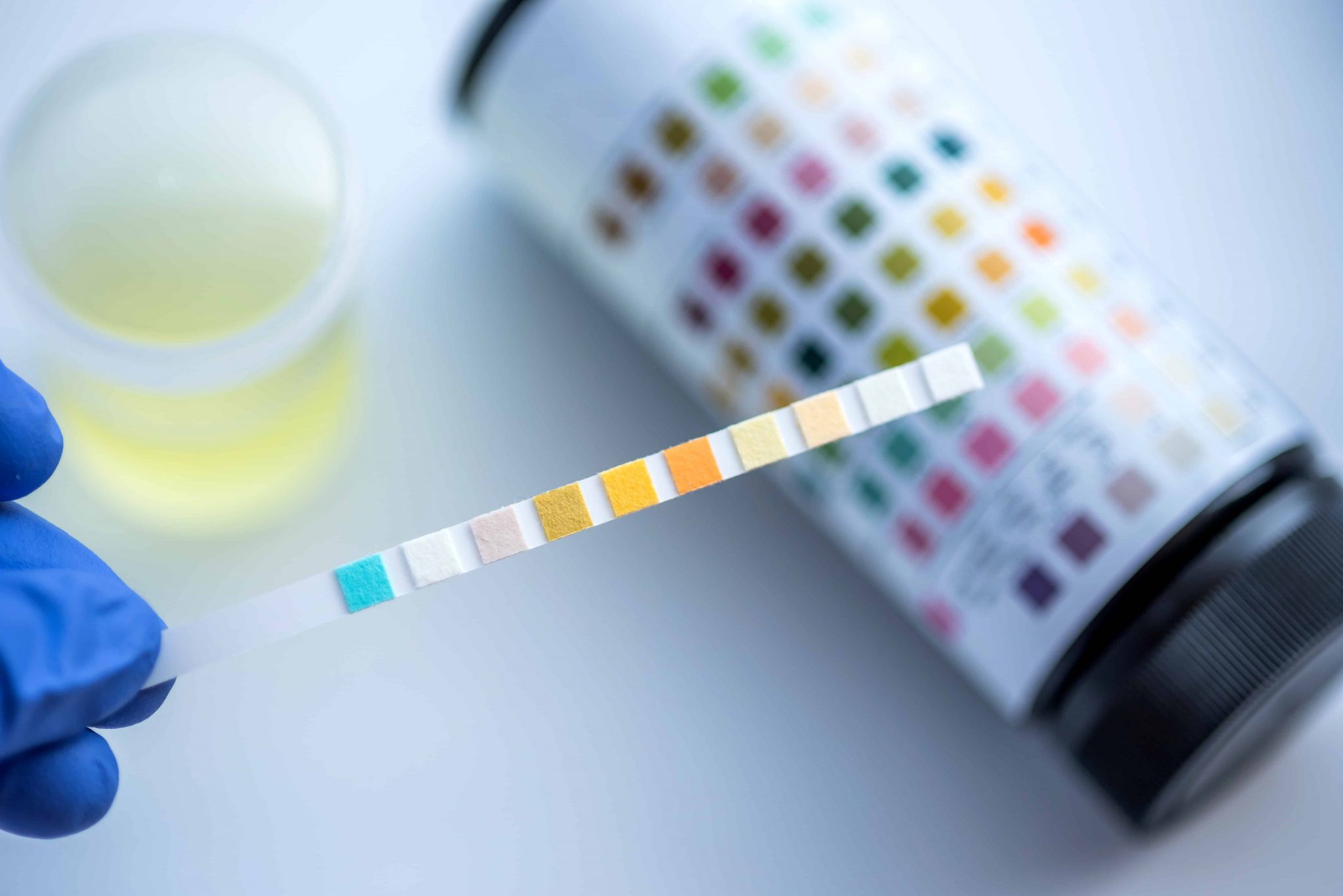The Acid-Base Balance – an Important Basis for our Health
The acid-base balance is determined by a variety of chemical compounds that react either acidic or basic and form a very delicate balance in the body.
To keep this balance constant, the human organism has various buffer systems that keep this pH value constant through metabolic processes or respiration.
There are acidic minerals such as sulfur, phosphorus, chlorine, fluorine, and iodine. Basic minerals are sodium, potassium, calcium, magnesium, and iron. The basic minerals belong to the deacidifying minerals. They are components of the natural diet and must be present in every cell for important neutralization processes.
Our body reacts very sensitively to pH changes and always tries to keep this value stable within narrow limits in the blood. In this respect, changes in the blood are only detected very late and are more relevant for diagnostics in clinics (and mostly in intensive care units).
The usual test method for us is self-measurement using urine test strips, the so-called litmus test.
If you perform this test several times a day, preferably about every two hours, you will get a daily profile. Usually, the pH value in this profile should be above 7 twice, i.e. in the alkaline range, mostly about two hours after the main meals, e.g. after breakfast and after lunch.
Causes of Disturbances in the Acid-Base Balance
But what leads to a disturbance in the acid-base balance?
The modern diet and lifestyle can easily lead to an over-acidification of the organism, which means that too many acids accumulate in the body and the buffer systems are overwhelmed.
Causes of over-acidification include:
- Too much animal protein
- Lack of fresh food, fruit, vegetables
- Low fluid intake
- Alcohol
- Medications, such as cortisone
- Chronic intestinal fermentation as a result of incorrect diet
- Chronic inflammation
- Chronic kidney weakness
- Lack of oxygen due to heart failure
- Massive physical exertion
- Poisoning
Acidic valences are deposited in the body and this leads to a so-called acidosis, an over-acidification, which, especially in the initial stage, can only show very unspecific symptoms:
- Tension headaches and fatigue
- Joint and muscle pain
- Tension
- Osteoporosis and arthrosis
- Stomach and intestinal problems with diarrhea or constipation
- increased susceptibility to allergies and infections
- Cardiac arrhythmias
- Fungal diseases
Acid-base Balance in the Context of Holistic Therapies
Over-acidification also plays an important role in the development of cancer, as tumors require certain conditions for growth. This is favored by over-acidification.
In this respect, the acid-base balance plays an important role in the prophylaxis and also
therapy of cancer diseases
.
Just as detoxification and drainage may be necessary to remove toxins in order to eliminate therapy blockages caused by them, the acid-base balance must often first be brought into a physiological equilibrium before we can begin with further therapies (e.g. immunomodulation).
A physiological deacidification through plenty of plant-based (raw) food, low-salt and potassium-rich nutrition and the use of right-rotating lactic acid are an important cornerstone of treatment for certain diseases.

